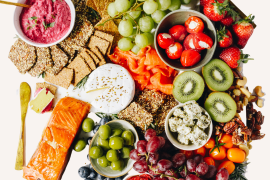Domestic violence cases are rising higher than ever during COVID-19
Domestic and sexual violence is still a major national health issue that can have lifelong impacts on all involved, with one woman dying every week in Australia by their previous or current intimate partner, through the means of domestic violence. Almost one in three women aged between 16 and 59 are expected to experience domestic abuse and violence in their lifetime. However, the vast majority of the abusive and violent behaviour occurs in the privacy of people’s home, making it difficult to tell if someone you know is experiencing domestic violence.
So, why does domestic violence occur?
Domestic violence stems from a desire to gain power and control, and by exerting that power and control over an intimate partner, it can give the abuser a sense of enjoyment and satisfaction. For other abuses, violence is used as a tool to keep their intimate partner from leaving the relationship or to ensure the other person stays faithful. And, in some cases, domestic violence occurs because actions aren’t taken quick enough.
However, domestic violence doesn’t just include hitting and physical abuse, it also consists of mental, emotional and financial abuse: including jealousy, possessiveness, put downs and threats.
What are some signs to look out for of an abuse relationship?
It isn’t easy to identify if you or someone you know is experiencing domestic violence or is in an abusive relationship, however there are a few signs to look out for, including:
- Unfairly and regularly accuses her of flirting or being unfaithful
- Controls how money is spent
- Decides what she wears and/or eats
- Humiliates her in front of other people
- Calls her derogatory names
- Monitors what she is doing, including reading her emails and text messages
- Discourages or prevents her from seeing friends and family
- Threatens to hurt her, the children or pets
- Physically assaults her (including; hitting, biting, slapping, kicking and pushing)
- Yells at her
- Threatens to use a weapon against her
- Constantly compares her with other people
- Constantly criticises her intelligence, mental health and appearance
- Prevents her from practising her religion
Unfortunately, a few of these signs may also be present in ‘normal’ marital arguments and it can be hard for woman to distinguish the difference. Typically, when a couple disagrees, their arguments are usually about the outcome of a particular issue. This doesn’t necessarily mean it is an abusive relationship, however the lines between domestic violence and ‘normal’ marital arguments can be blurred.
In comparison, emotional abusers seek control over their partners, which can lead to the partner having deep emotional scars. As well, an emotional abuser will establish dominance by diminishing the self-worth of their partner, which is very different to a ‘normal’ marital argument.
How do you support someone in an abuse relationship?
If you are experiencing, have experienced or know someone who is experiencing violence, you can help them by:
- Believing the person
- Make sure they understand they aren’t at fault
- Listen without judging
- Be supportive, encouraging, open and honest
- Ask if they need help from a support service and discuss their options
- Help them get advice and support by calling 1800RESPECT or visiting their website
- Offer to go with the person if they meet with a support service
- Keep in touch with the person to see how they are going
To protect women from domestic violence, we must create an awareness and understanding around it. Women experience sexual violence and violence from an intimate partner far more than men. Around 95% of all victims of violence, whether women or men, experience violence from a male perpetrator.
If you or someone you know is suffering from domestic violence, 1800RESPECT is there to provide confidential information, counselling and support. Don’t suffer in silence.
Phone – 1800 737 732





